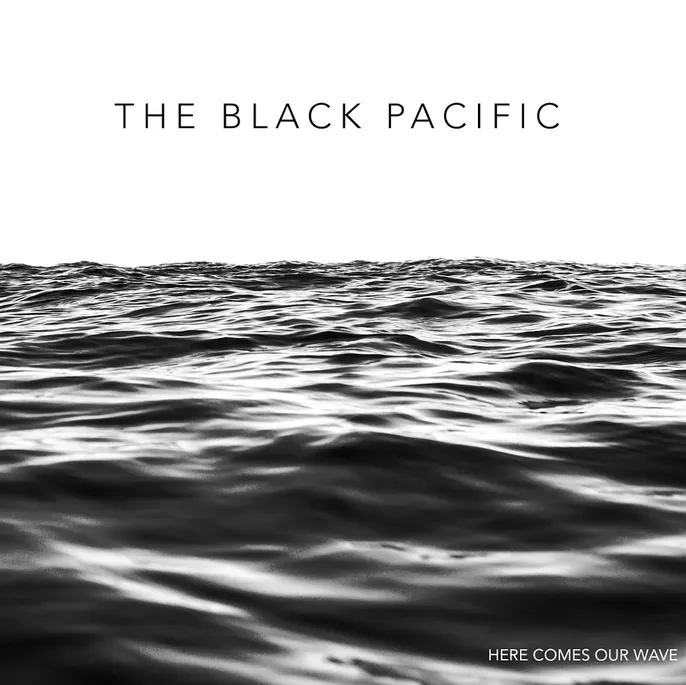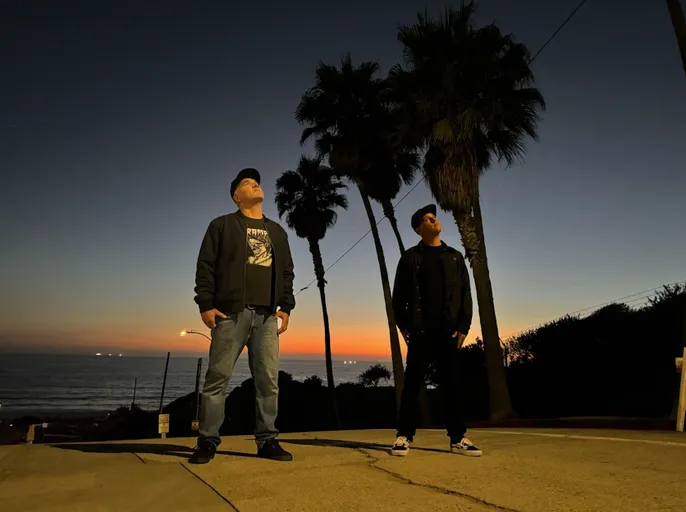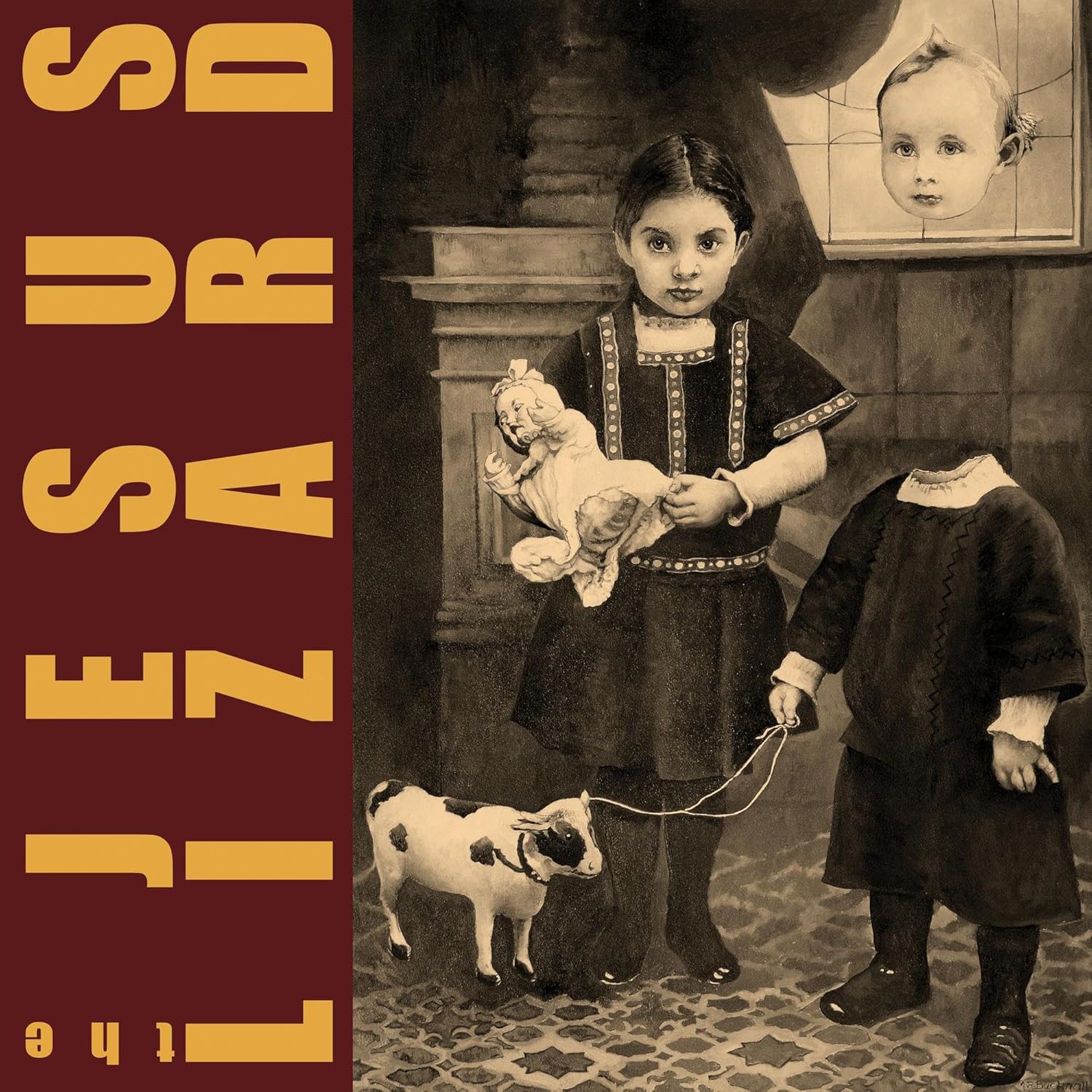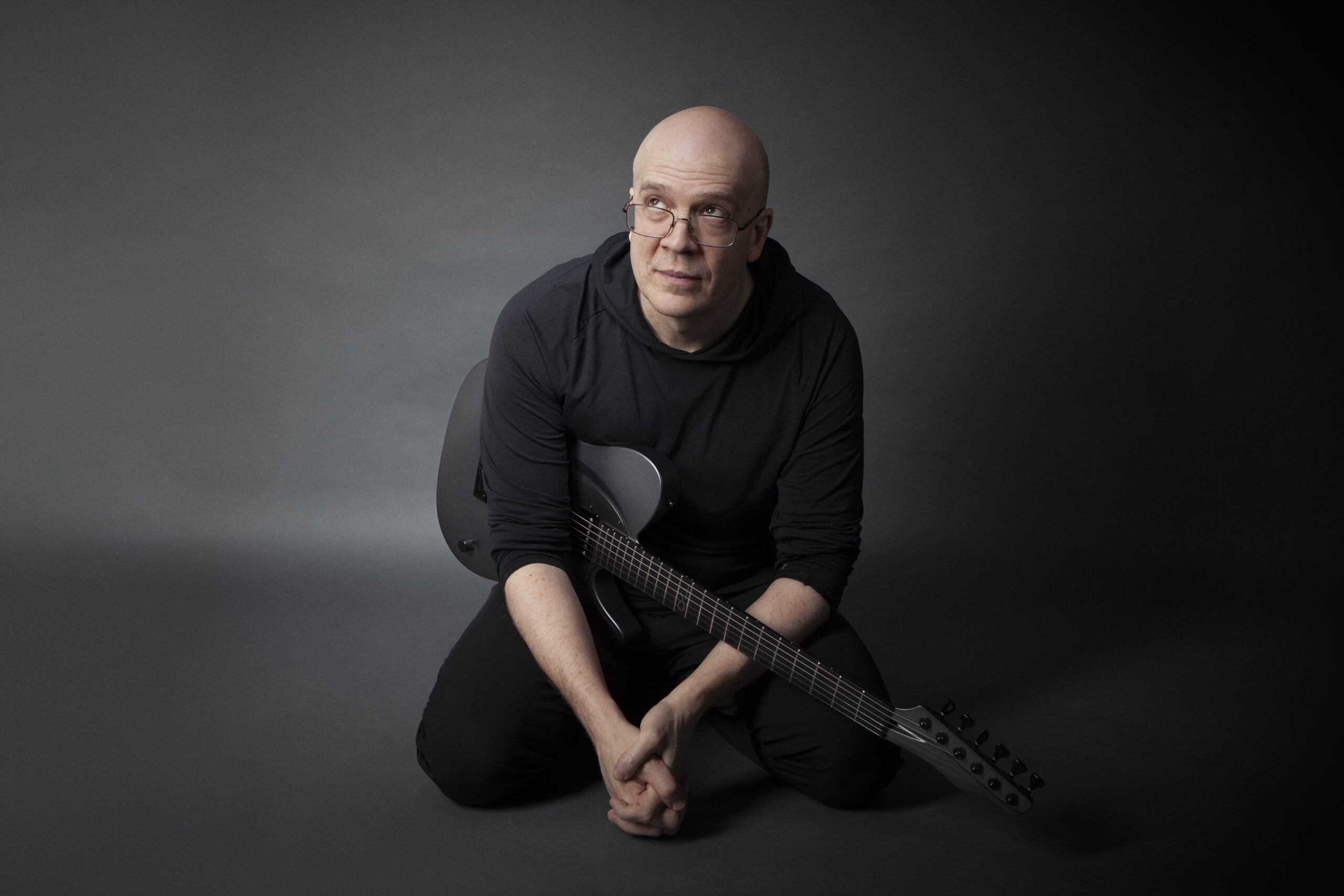At Damnation, one band stood out above all others. Mired in smoke and utterly different from any other act that aired that day, Arabrot utterly mesmerised all who stood before them. Playing a set that drew heavily from stand-out album The Gospel and latest effort who do you love, Arabrot held their audience rooted to the spot with a performance that was simply astounding.
Shortly beforehand, I had the opportunity to sit down with the quietly-spoken Kjetil, the band’s enigmatic frontman, for a chat about the band’s evolution, their signing to Pelagic and the importance of literature in the band’s lyrics.

It’s nice to finally meet you – I interviewed you once before, just after the release of the Gospel and just before you performed a very special live show at part of Secret Cinema – I don’t know if you remember that performance but it was in a kind of an arthouse installation.
Was that Bradford – we did it with John Doran and Andrew Lyles, of Curran 93 and Nurse with wound and John Doran… we did a tour when he released his book, Jolly Lad, John Doran, he’s a writer form London (well, not from London, but he lives there); he’s the guy who runs the Quietus too and we did this tour and Karen Park, who’s in Arabrot too as the synth player. That was pretty interesting that night.
It was amazing… but I think that was a different night. The event I’m thinking of was an abandoned office block – it had been made over to look like an asylum…
Was that in Stoke? Yeah – we did a regular show there… That was fantastic – they were called B-Arts and they had this Japanese film going right before – a really good one – and that was really cool. That was a good night. Ah right.
Yeah, so I had the opportunity to speak to you and The Gospel had been a very difficult album, I think, because you’d had cancer and the awful treatment that went with that – Brachy, I think it’s called…
Oh yeah yeah yeah – I was really rough.
Then the Gospel came together – which was a really powerful body of work still…
Thank you man – cheers!
So, from The Gospel, you had a chance to tour the album, but the big change for you this time out is you’ve moved from Fysisk Format, the Oslo label, to Pelagic – how did that change come about?
It was a really natural change, that one. At the time when we released the Gospel, a lot of things changed for us. I don’t know how to explain that. We were at this one level and we just jumped up another level with the Gospel. There were a lot more people getting interested in the band, a lot more stuff happening around the band. There was a lot of… it was a very big change, actually, the gospel. So, I think a natural consequence of that was also changing a lot of things – we had a new booking agent, new management and also a new label. I guess that Pelagic records – they are slightly bigger, they have kind of a… they can definitely bring the word of Arabrot out a little further I think, so we’re trying that out now and it’s worked out really well so far.
The reason I asked is that, normally label changes aren’t that interesting to be honest, but the thing about Pelagic is that they have a reputation for doing really cool artistic pieces with the bands that they produce, so I felt that, with The Gospel – the vinyl for that was stunning – so it seemed like a really good opportunity for you guys to develop that side with the label…
Absolutely and Robin, Stapps, who’s the head of both The Ocean and Pelagic – he came to see us. We did a show in Berlin with Italian, Xu; and he was in the audience and I think he saw the Gospel and he saw us playing The Gospel and he picked me up right afterwards and asked if we wanted to be… he was like “you guys want a deal?” So, we got a deal and that’s really nice and he’s a really cool guy. And yeah, I think he’s a good home for us. They’re very specific about what they do. He is and they are very specific about all of their releases. They’re very thorough in their work and it’s been good so far man.
In terms of the music, there seems to have been a huge evolution – very organic – but it has been a shift form the earlier stuff like Solar Anus which was very aggressive and confrontational – but The Gospel had that preacher / Nick Cave-y vibe to it. Does that evolution tie in with your life experiences because you had the illness and, I think, you moved into an old church as well, so I was wondering how those experiences tie in with the evolution of the band….
Yeah yeah yeah –and you’re totally correct: it all happened very naturally. Even at the time of Solar Anus…. It felt, in many ways like the end of the first era (the punk years or whatever), and I wanted, already at that time, to move the band into the more new wave / post-punk territory. Like the eighties band I loved, like Killing Joke or even Stranglers, wire… all of this phenomenal British music that I’m really into. What people then hear, on the last couple of records especially, is that the vocals are more in front. That’s just because of that, really. It’s a slight change in the approach and it has worked out really well for us. With Solar Anus, definitely, felt like the end of the first era and the second era started off with the last couple or three albums. And that would also be, as you said, the time when we moved into the church in the woods in Darlarna Sweden. Of course, I didn’t plan that, but you know I got sick there and it definitely felt like it evolved in that direction that I kinda wanted and when I got sick it was like “here we go…” this is going to be a new era starting for sure. Which is… we’ll see! We’re already working on some new material…
Killing Joke – the main thing is the way that they create such a powerful atmosphere and their vocals are very up front…
They are
…and that fits very nicely with the Gospel where there’s a wall of sound, but then the vocals sit over that and drive the message and the power…
Absolutely. Yeah – exactly like Killing Joke. I’m a super-big fan. Especially the early stuff, up to a certain point in the eighties. I think all of that stuff from Killing Joke is fucking brilliant.
It’s difficult to get that glacial production, but it’s so cool if you can get it right…
Yeah, I know, I know. Just listen to Fire dances – ‘83 or whatever… ’82. I think that the drummer, when he finally hits the high hat, it’s like song number eight. It’s just tribal stuff going for all the tracks and then finally, on the second side of the LP, there’s finally a little bit of cymbals going.

So, on this record, you’ve got an unexpected cover – Sinner man – approaching covers is always difficult. To do a cover well, and obviously different people approach it in different ways, but for me it’s always to take it in a different direction, so it becomes your own and that’s something I think you’ve achieved – how did you go about choosing and bringing that into the record.
Yeah. It’s always quite special because we don’t usually do covers. I don’t know. I’ll only do a cover if it feels like… I don’t usually get the idea of doing a cover – I don’t think about it too much. But I was at home, in the church and I had a weekend off and I was watching that Nina Simone documentary – it’s on Netflix and it’s really good… fascinating. I knew about the song Sinner man – obviously I have her records, but I was like… the performance she did in that documentary, performing that song – it was like “whoa! OK” and I was sitting by myself and I did an impromptu demo of it and it worked really well and there was a sort of intensity in the vocals or whatever and I thought it was really cool. So, I re-recorded it as a demo and that same vibe came through again and I was, like, OK this really works – this is really cool! Then we did the album recordings then, we decided to record it because I thought it would be good to have as a B side or as some promo material or whatever and then, we were discussing how to make Who Do You Love and which songs to include and we were discussing with management and everything and they were all like: Sinner Man has to be single number one. And I was like “O…K – I didn’t really expect that, but OK!” So, I’m really happy with how it turned out. I think there’s a really cool vibe to it. It’s nearly impossible to do live, with just the four-piece, so we can’t do it live, which is too bad. Hopefully with some more musicians, because there’s a lot of stuff going on with it. There are lots of layers of sounds and stuff. So… yeah!
It’s interesting you mention sequencing and bringing in management and stuff because I think that one of the hardest things to do is to sequence a record so that it flows from start to finish and with Arabrot it’s very important that you listen from start to finish as a journey…
I’m glad you said that… Actually I don’t have a lot of people working on it and the reason why I would have people coming in and saying stuff is because everything else is just me, so it’s got to be that there’s more input. I’m trying to involve more and more people, because I think it’s crucial. Otherwise I might… end up in my own loop, so at some point, some people would have to come in and luckily our manager, Ivar from Enslaved. He’s from where I grew up, so, we are friends so it’s… also, I bring in Karen, of course. She co-produced Who Do You Love and she’s a big part of it and then, the band, obviously. You need some input at some point, or else it would just all be me. Yeah… you need to avoid the situation… you know those guys who play music in the street where they have cymbals and drums on the back and the guitar and singing and kick drum on the pavement – you feel kind of like that if you don’t involve some more people.
It’s a tough thing to do and there’s almost more blood on the walls than getting the songs in the first place…
I’m glad you said it feels like a journey because I definitely work on albums as a journey for sure and I spent a lot of time on trying to develop how the record is going to be put together and how the songs are going to work together and, you know, as a batch of songs. I’m glad that… hopefully it works!
Particularly now with MP3 and so on… it’s somewhat reductive, I know, but lyrically the twin peaks of sex and death seem to be primary. Is that still thematically where you’re driving?
It’s sort of like that. Yeah. Some people say “porn and bible!” It’s just different ways of putting it I guess. It still comes from the same place but, we… it’s just a result of the kind of literature I’m interested in and the kind of films and the kind of music I’m interested in basically. For this last record, I brought back a book called Maldoror…
That’s one of the singles I think?
Maldoror’s Love, yeah, exactly. It’s a crazy book from 1870, written by this guy; this French guy; a surrealist / proto-surrealist and this guy Maldoror is probably the most evil guy in literature ever with the exception of maybe Satan, you know, so I found it really fascinating re-reading this book and there are certain points of compassion and some sort of human side to this evil character and I found that really interesting and that’s how I write… that plus the Bo Diddley Who Do You love song character – those two characters made the foundation for the thematic side for Who Do you Love.

I think there was an interview that you did where you were talking about the bible and religion and I think you said that for you, reading the bible is no different from reading any other academic or literary text and that’s interesting because it’s such a fertile ground for lyrics and discussion if approached in that way.
Absolutely. Especially the Old Testament. I haven’t read it all… that would have been crazy, but I use it in the same way that I use other big works like Dante’s Inferno and stuff like that. I haven’t read the whole of Dante’s Inferno either. It’s fucking big! And have you tried to…
I have but it’s fucking hard work!
Yeah, it’s a hard one… Speaking of journeys – that’s a good journey! The version I have, fortunately, has like a resume of each of those Cantos in the beginning, so you read through that and then you understand what’s happening and then you read the, you know, poetry afterwards. It’s really good. I use it like that and, for several years, I’ve been using it for inspiration. Yeah, I don’t see it as… if you take away all of the religious stuff, if you take it out of the bible, I find it more interesting. I think the Christian themes bore me – it doesn’t interest me…
But when you take the dogma out…
Exactly. Some of those stories are insane! We have a song, which we’ll play tonight, called Story of Lot, taken from the bible and I kind of re-wrote it as a modern story and that story is crazy – this guy… he has sex with his daughters. His wife turns into a pillar of salt… as he’s running out of Sodom or Gomorrah. It’s fascinating… it’s a fascinating, 2000 year old story. It’s crazy.









Leave a Reply